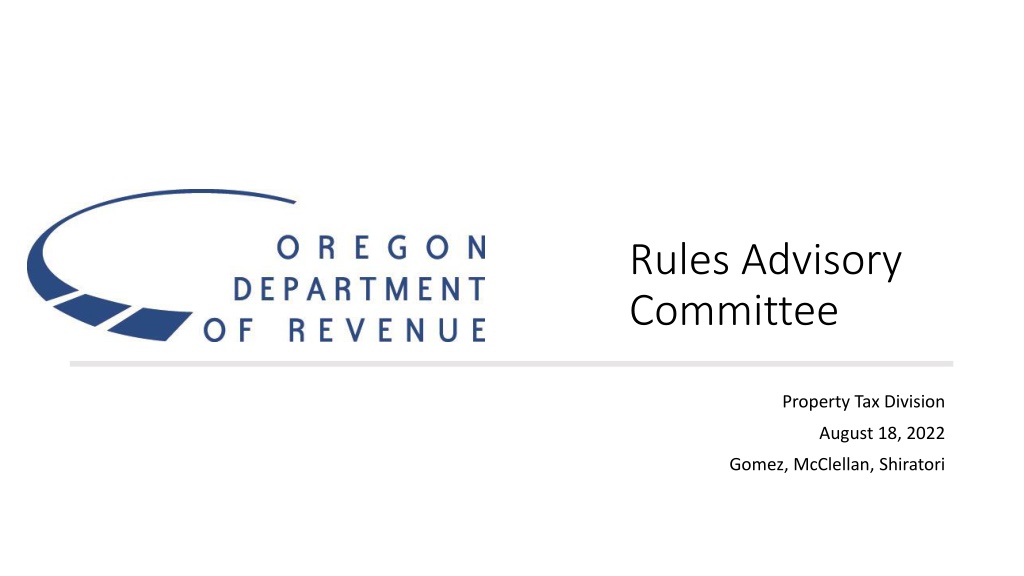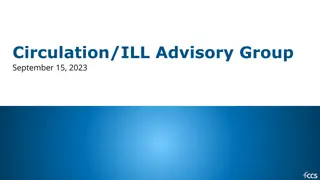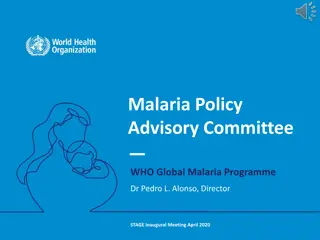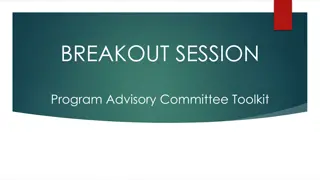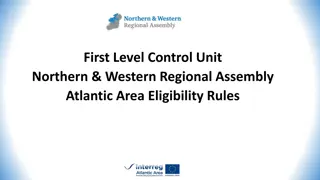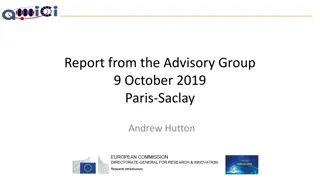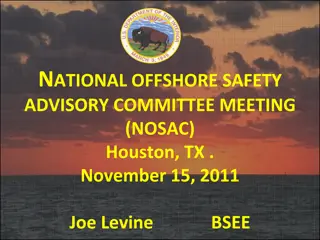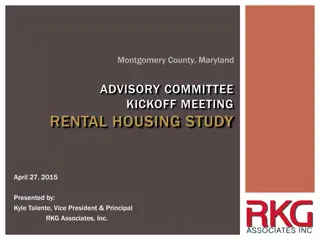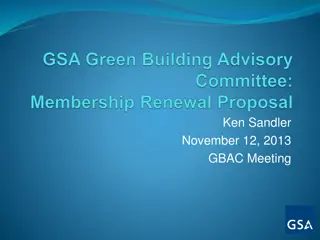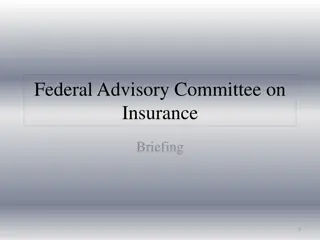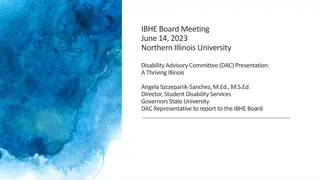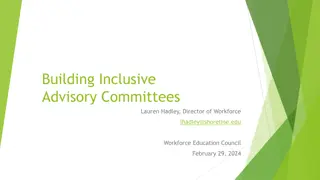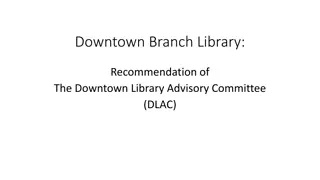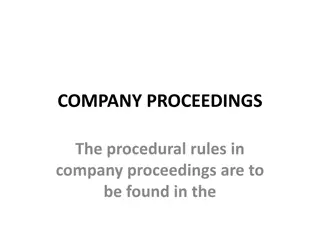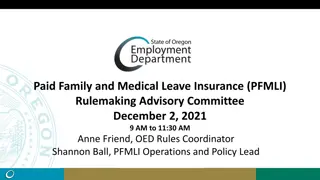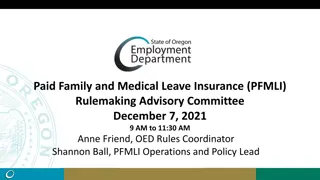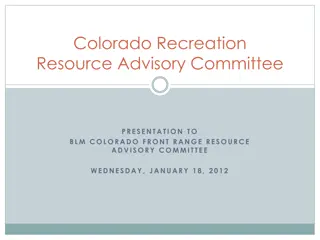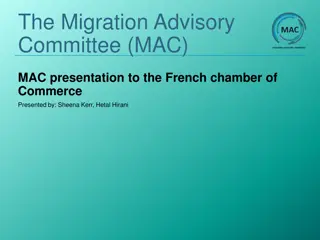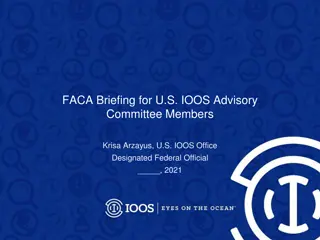Rules Advisory Committee
This Rules Advisory Committee aims to inform and assist the Department of Revenue in developing rules for property tax division, focusing on maximizing MAV for properties eligible for partial exemptions. Members collaborate to address fiscal impacts on small businesses and ensure compliance with legislative intent and statute.
Download Presentation

Please find below an Image/Link to download the presentation.
The content on the website is provided AS IS for your information and personal use only. It may not be sold, licensed, or shared on other websites without obtaining consent from the author. Download presentation by click this link. If you encounter any issues during the download, it is possible that the publisher has removed the file from their server.
E N D
Presentation Transcript
Rules Advisory Committee Property Tax Division August 18, 2022 Gomez, McClellan, Shiratori
Members Rules Advisory Committee John Barbee, HEP Global Nathan Bigby, President, Oregon State Association of County Assessors Brooke Brownlee, Portland General Electric John Calhoun, Tax Fairness Oregon Mark Gharst, Lobbyist, League of Oregon Cities Terry Harris Ryan Harvey, Pacificorp Tyler Janzen, Association of Oregon Counties Erik Kancler, Oregon State Association of County Assessors Pandian Krishnaswamy, Oregon Department of Energy Scot Langton, Assessor, Deschutes County Kathy Moyd, League of Women Voters Ray Sanchez Pescador, Solarize Rogue Ryan Sheehy, Oregon Solar and Storage Industries Association Hasina Wittenberg, Special Districts Association of Oregon 2
assessors to re-calculate the maximum-assessed value (MAV) of properties when they are newly-eligible for or disqualified from a partial exemption of assessed value (AV). If the RAC indicates that the potential rules will have a significant adverse fiscal impact on small business, the agency will seek the RAC s input on mitigating the cost of compliance. Though this RAC is not a voting body, DOR s goal in convening members is to receive individual and group input for administrative rulemaking. The input provided will help DOR to develop draft rules for the Director s consideration. PURPOSE This Rules Advisory Committee (RAC) will help inform and assist the Department of Revenue (DOR) administrative rulemaking to develop rules for county constituent group they have been asked to represent, while first and foremost serving the needs of the state as a whole. Members will consider the viewpoints of other participants and conduct themselves in a respectful manner that promotes collaboration. RAC OPERATING PRINCIPLES, GUIDELINES, and EXPECTATIONS This RAC agrees to seek balanced recommendations that comply with legislative intent, align with the statute, and address the needs of the broader Meeting Preparation and Participation Attend the meeting. Prepare for the meeting by reading materials in advance and arriving on time. Notify DOR if there is an unavoidable conflict that requires late attendance or absence and provide comments prior to the meeting if unable to attend. Role and Operating Principles Meeting Deliberations Listen carefully and respectfully. Encourage respectful, candid, and constructive discussions. Focus on the subject at hand and help the group stick to the agenda. Allow for a balance of speaking time and respect time limits. Seek to resolve differences and find common ground. This should be a safe place where specific proposals can be made in open and frank problem-solving conversation. Making Recommendations Recommendations should align with legislative intent and DOR statutory authority. Written comments from members unable to attend meetings will be considered. Strive to come to consensus on the recommendations - understanding that recommendations are strengthened by high levels of agreement. Consensus is achieved when all members can accept and will support the recommendation. RAC recommendations will be understood as the most viable choice even if it may not be each individual member s personal preference. Accessibility to Public Meetings will be open to the public for observation. Members of the public who wish to provide comments to the RAC are encouraged to submit written comments to DOR by emailing Philip.L.McClellan@dor.oregon.gov. All written comments will be distributed to RAC members for consideration. Ten minutes will be set aside at each meeting to allow for brief public comments and to share any written comments received. External Communications All official communications regarding the process will be conducted through DOR. Members will refrain from mischaracterizing comments or views of the other members. Inquiries by the media will be referred to robin.maxey@oregon.gov. In communication outside of RAC meetings, members shall clearly state the views they are expressing are their own and not that of the RAC. Members will communicate with their stakeholder groups to ensure that they are well informed of the group s discussions and progress and to ensure that issues are identified that need to be communicated to the RAC. Members will contact DOR staff regarding suggestions to help future meetings and activities work more effectively. Participation in the RAC does not preclude any member from providing public comment on the draft administrative rule in any rulemaking process open for public comment. 3
1. Roll call Agenda August 18, 2022, 12:30 PM-2:30 PM 2. Introductory comments 3. Review draft rule language 4. Discussion 5. Public comment 4
Oregon Laws 2022, Chapter 79 5
Draft Rule 6
Questions? Phil McClellan 503-586-8128 Philip.l.McClellan@dor.oregon.gov 7
Do you have questions or need help? www.oregon.gov/dor 503-378-4988 or 800-356-4222 questions.dor@oregon.gov Contact us for ADA accommodations or assistance in other languages. 8
